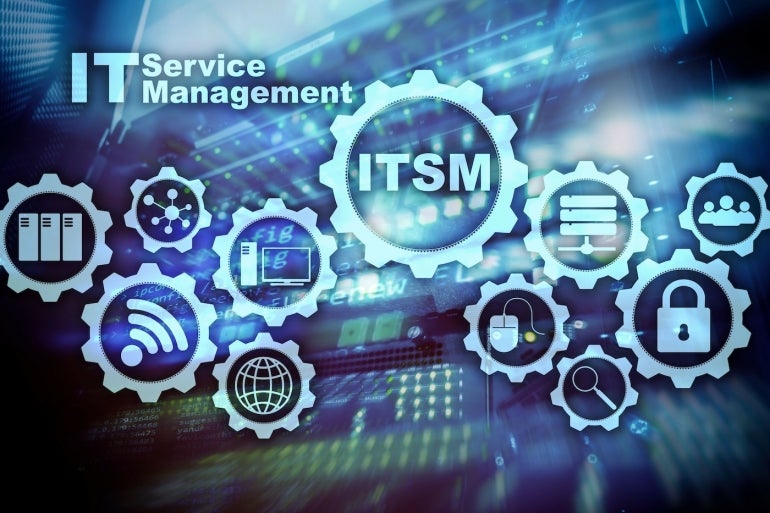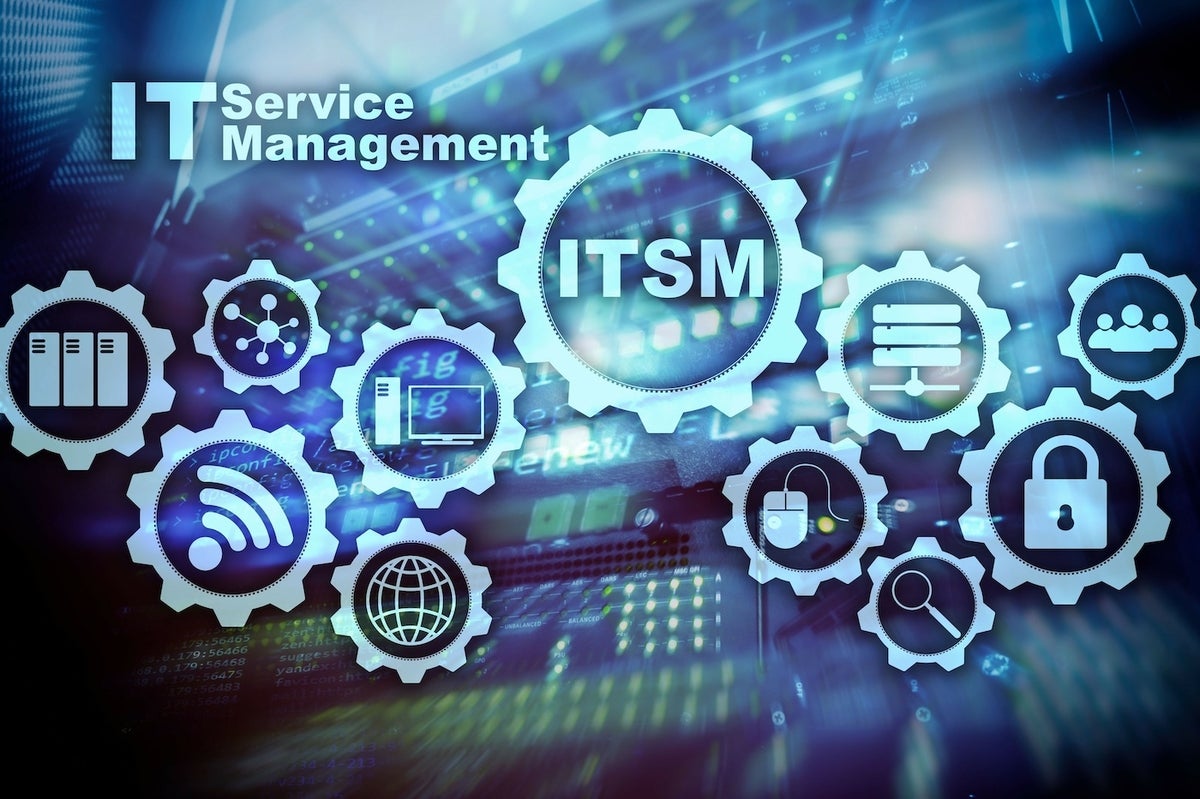
IT service management, or ITSM, certifications have become standard across the technology sector. These certifications can show competency and knowledge related to designing, planning, operating and delivering IT services.
ITSM is based on the framework of ITIL, or the IT Infrastructure Library. This documentation informs ITSM practices and is used as a guiding principle.
SEE: Check out these simple ITSM best practices.
The focus of these certifications is to enhance the delivery of value to customers by improving information systems processes that can increase efficiencies and reduce downtime or interruptions.
Below, we’ll look at the most popular ITSM certifications and why each one is important in the field of information technology.
Jump to:
Top ITIL certifications
Since ITSM processes are informed and guided by ITIL best practices and guidelines, it’s best to start there.
ITIL certification is currently at Version 4 (ITIL 4) and is organized in a tiered structure.
ITIL 4 Foundation
As the name suggests, the ITIL Foundation certification sets the foundation for understanding the essential ITIL framework and how it relates to delivering value through technology services.
This certification focuses on the four key elements of the ITIL framework, which are as follows:
- ITIL guiding principles.
- The four dimensions of service management.
- The move from processes to practices.
- The ITIL service value system.
ITIL 4 Managing Professional
The ITIL 4 Managing Professional, or ITIL MP, certification is the next step after learning the foundations of ITIL.
The managing professional certification looks at practical ways to manage an IT service or department. It focuses on all aspects of running an IT department, including managing teams, customers and services.
The ITIL Managing Professional certification is broken down into four modules:
- ITIL 4 Specialist: Create, Deliver and Support.
- ITIL 4 Specialist: Drive Stakeholder Value.
- ITIL 4 Specialist: Support High-velocity IT.
- ITIL 4 Strategist: Direct, Plan and Improve.
ITIL 4 Strategic Leader
The ITIL 4 Strategic Leader certification is for those who will be implementing IT services and workflows alongside company strategy and future goals. It focuses on success through processes that deal with competition and navigating challenges in areas of technology that must be overcome.
There are two modules within the ITIL Strategic Leader certification:
- ITIL 4 Strategist: Direct, Plan and Improve.
- ITIL 4 Leader: Digital and IT Strategy.
This certification is for those who want to implement positive organizational change with a focus on constant improvement. It also focuses on methods to support changes in management styles in a way that minimizes disturbances to workflows.
The second module, Digital and IT Strategy, focuses on working across organizational departments to implement synergistic strategies. Risk management is also addressed, along with processes for mentoring and developing new talent and leadership candidates.
ITIL 4 Master
The ITIL 4 Master certification moves away from coursework and focuses on real-world usage and implementation of the other ITIL 4 principles and modules.
This certification requires five years’ experience in IT-related services implementing and using the other ITIL 4 concepts. This experience must be within leadership, managerial or advisory areas of an organization or service provider.
To obtain an ITIL Master certification, there is no set test or curriculum to follow. Instead, it asks for individuals to document their own experiences and success in implementing the concepts of previous ITIL 4 modules. The certification is 100% based on real-world applications and how an individual is able to document and explain their decisions, as well as the results that follow.
More ITSM-related certifications
While all ITSM certifications and methods are informed by ITIL 4, there are other certifications outside of ITIL that demonstrate an understanding of best practices when providing IT services.
Below, we’ll look at some of the top certifications for those looking to expand their knowledge of ITSM-related concepts.
CompTIA Fundamentals
The CompTIA IT Fundamentals, or ITF+, certification is an introduction to core IT services. This can be seen as a first step for those looking toward becoming IT service managers in the future.
This course is also suitable for those who are not IT managers but want to better understand the processes and concepts involved in IT management in order to make better decisions and more easily work across technology departments.
CompTIA Security+
This certification is aimed at those already working in IT services that want to expand their knowledge and understanding of security and how it integrates with other aspects of IT service management.
The coursework and testing for this certification deals with being able to assess specific network security issues and develop strategies for fixing them. In addition, CompTIA Security+ deals with how to implement security-focused services across different platforms.
Individuals can expect to learn IT security best practices as well as ways to maintain compliance with industry standards involving privacy and data security.
CompTIA Network+
The course and certification for CompTIA Network+ involves the fundamentals of networking in an IT services environment. It focuses on the core aspects of a network, such as cabling and various hardware devices.
The CompTIA Network+ certification also focuses on more advanced topics, such as how to properly implement network components and how to troubleshoot common problems and network failures.
While not a complete networking course, this is a strong foundational certification for those who want to learn best practices when it comes to networking and working in IT services.
CompTIA A+
The CompTIA A+ certification aims to teach the fundamentals of providing IT service support to end-users. The focus is on end-user hardware and software implementation and troubleshooting.
This is an entry level certification for those looking to work in IT service management. Despite being an entry level certificate, it does touch on more advanced concepts like security and cloud computing.
CompTIA A+ also touches on operating system fundamentals and how support for software-related issues can be handled effectively.
Final thoughts on ITSM certifications
The need for certifications arose due to the dynamic nature of IT service management and the underlying technology. With the ever-evolving landscape of technology services, it became crucial to have certifications that can swiftly adapt to these changes.
Focusing on certifications that show your competency in key areas of IT service management is an important way to demonstrate how you can bring value to any technology-related team or organization.
Read next: Explore the future of ITSM platforms for digital transformation.








